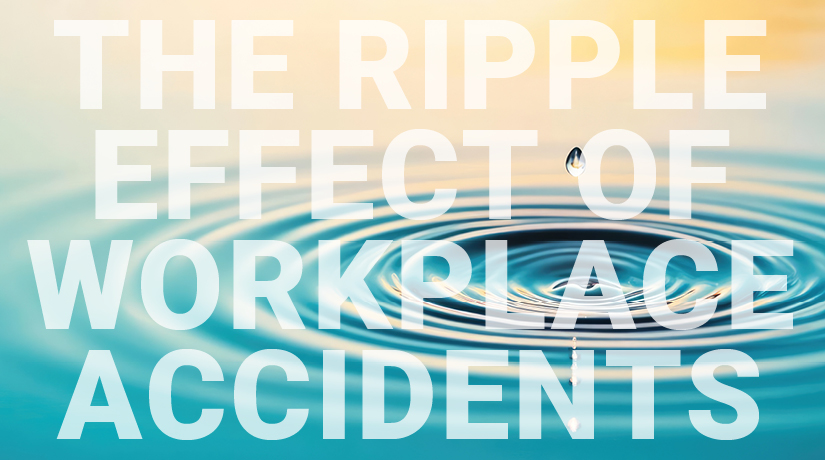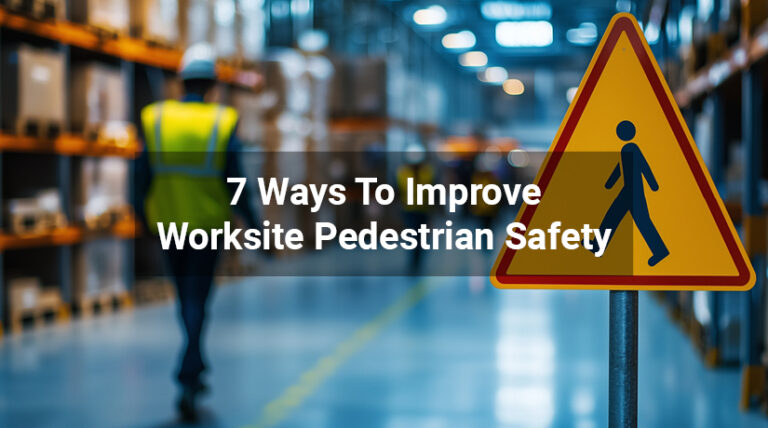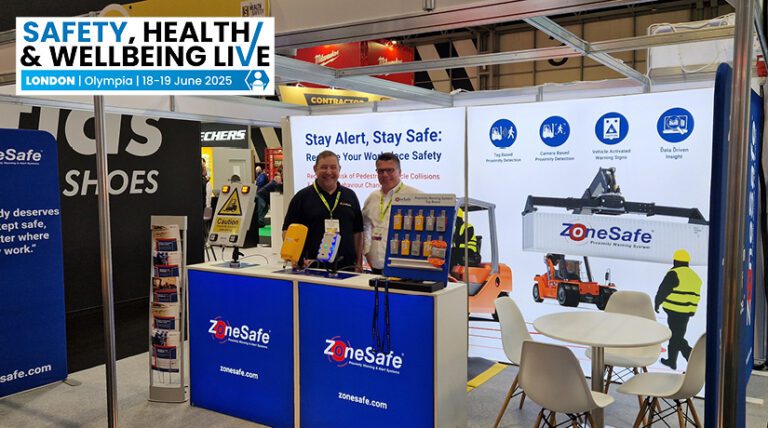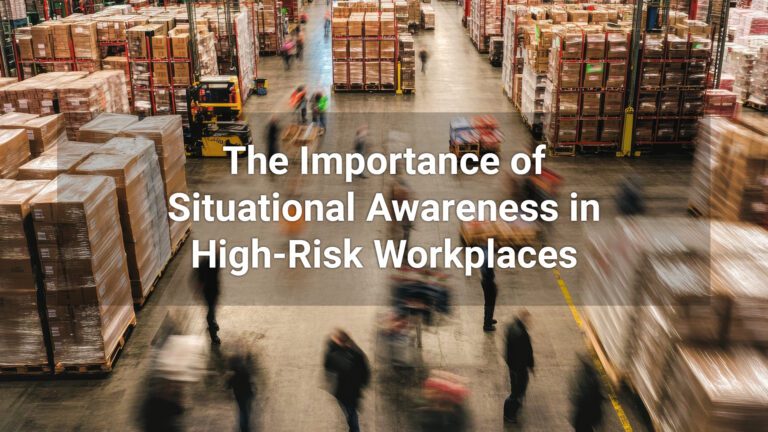Ensuring the safety of workers is a big responsibility and one that conscientious businesses must take seriously. Workplace accidents have devastating consequences for all involved and can be very destructive for businesses. By recognizing workplace accident prevention as a strategic investment, businesses not only demonstrate their unwavering commitment to employee safety but also actively protect their productivity, reduce potential losses, and cultivate a more resilient and sustainable future.
2023/24 HSE accident at work figures reveal 604,000 UK workers sustained a self-reported non-fatal injury in the workplace, while 138 workers were sadly killed in work-related accidents during the same period. These types of accidents harm individuals and their families and colleagues and have a knock-on effect on the overall reputation and success of the business.
When accidents happen, a thorough investigative process ensues. This process is designed to reveal the cause of the accident and identify ways to ensure the same events do not occur again in the future. The result of a serious accident for the business can run for years after the event, and some businesses never fully recover.
What Is The Ripple Effect
The ripple effect occurs when an initial event extends outward to create a broader disturbance to the surrounding area, like ripples from a stone thrown into water. Workplace accidents have a similar impact – the effects of the accident stretch far beyond the initial event.
Immediately after an accident, the focus tends to be to quickly find the cause and identify ways to ensure this doesn’t happen again. It’s a reactionary approach to fix a problem after it’s happened. While this may solve the immediate issue in the short term, a more effective and proactive strategy lies in workplace accident prevention. It’s important to think wider than simply reacting to events and instead look outwards to assess the broader impact on the business. The ‘ripple effect’ affects many parts of the business, and all these need to be considered, highlighting the value of preventing accidents in the first place.
Hidden Costs
A common misconception is that company insurance covers the financial costs associated with an incident. But often, this is not the case. In reality, the costs incurred through ill-health, accidents and deaths at work can easily spiral well beyond the initial cost of the event, with the hidden costs outweighing those of the initial incident. Indeed, HSE estimates that hidden costs arising from an accident can be up to 10 times greater than those covered by insurance.
The ripple effect often results in additional costs, which could include:
- Lost productivity – injured parties may be off work for a prolonged period.
- Low morale – this can lead to poor individual and team performance and additional costly training programmes.
- Sick pay – short and long-term.
- Additional costs for overtime and temporary staff to cover sickness.
- Lost time – downtime for investigation costs money.
- Fines – following investigation, fines can fall into the millions if the business is found to be in the wrong.
- Prosecution – affected parties may take legal action against the business. This can take years to resolve, and costs can spiral.
- Loss of contracts and damage to reputation –the cost to reputation is immeasurable and can result in the business struggling to gain new contracts or even the closure of a business.
- Legal action and additional legal costs.
The financial cost to a poorly prepared business cannot be underestimated. Even a profitable organisation has the potential to end up going out of business if the costs associated with an incident become out of control. Engaging in workplace accident prevention means embracing the wisdom that prevention is always better than cure – it’s about putting measures in place to stop accidents and avoid their costly consequences.
Eye-Watering Fines
The sheer cost of workplace accidents is mind-blowing. HSE estimated the annual costs of workplace injury and new cases of work-related ill health in 2022/23,to be £21.6 billion. This is a huge sum and illustrates the scale of potential costs when accidents occur.
Fines associated with responsibility when a business is found to have neglected safety concerns or failed to put appropriate safety measures in place regularly run into the millions. The reality is that this could spell the end of the business.
The five highest health and safety fines issued in 2024 include:
- Recycling company Veolia was fined £3 million following the death of a worker during the decommissioning of a North Sea gas rig.
- BAM Nuttall Ltd was fined £2.345 million following the death of a worker who drowned when the boat he was on capsized in turbulent water.
- Openreach Limited was fined £1.34 million when a worker slipped and fell into a river during a repair job.
- CF Booth Limited was fined £1.2 million when a worker was seriously injured after being struck by a 32-tonne skip wagon as he tried to walk across the yard.
- Tata Chemicals Europe Ltd was fined £1.1 million plus £60.6k costs when a worker slipped and fell into a trough containing heated calcium hydroxide, causing severe chemical and thermal burns.
The need for proactive workplace accident prevention
The potential scale of financial impact following a serious workplace accident is clear. Taking a purely reactive approach to safety just doesn’t protect a business or its people. Preventative and proactive safety not only protects people and ensures you are running a responsible business but also protects the business’s financial stability in the long term.
Simple everyday safety measures will help to prevent accidents in the workplace.
- Be alert and practise good situational awareness.
- Ensure regular robust training is scheduled.
- Promote safe working practices.
- Ensure the use of required PPE (protective equipment) is mandated.
- Provide clear and easy-to-understand procedures.
- Communicate clear emergency instructions.
- Maintain and regularly check workplace transport and machinery.
- Practice an open communication and no blame culture.
How does ZoneSafe help?
ZoneSafe has the power to transform high-risk workplaces. The easy-to-use system is easily incorporated into PPE and onto workplace transport with minimal disruption to operations.
Once in place, ZoneSafe alerts workers to the presence of risk before an accident takes place. This alert immediately raises situation awareness and allows users to stop and check the area around them. Considering the high number of avoidable workplace incidents, this technology effectively demonstrates proactive workplace accident prevention by stopping them before they can happen.
Take action
Workplace accidents have significant adverse effects on a business. Employers have a responsibility to protect their people and their business. Following an incident, the ripple effect can be far-reaching, so it is always best to take action in advance to stop accidents from happening in the first place.
Installing a proximity warning system illustrates a firm commitment to preventative safety and saves businesses money in the long run.
ZoneSafe offers workplace accident prevention with its range of proximity warning and alert systems. Using innovative identification and detection technologies, ZoneSafe significantly reduces the risk of accidents, injury and damage to people and assets on work sites.
Contact ZoneSafe to discuss your workplace safety concerns – https://zonesafe.com/contact-us/




